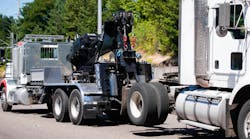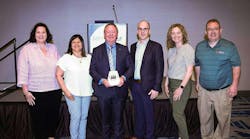Toyota CEO Akio Toyoda, per a prepared statement released today that he will deliver before Congress tomorrow, has taken full responsibility for the safety crisis roiling the world’s biggest car and truck maker. By way of explanation for the problems, he said that Toyota’s long-held priorities of safety, quality and volume, fell victim to the manufacturer’s soaring growth: “These priorities became confused, and we were not able to stop, think and make improvements as much as we were before.”
He stated that Toyota “pursued growth over the speed at which we were able to develop our people and our organization. I regret that this has resulted in the safety issues described in the recalls we face today, and I am sincerely sorry for any accidents that Toyota drivers have experienced.”
Toyoda , who will present his testimony tomorrow before the House Oversight and Government Reform Committee, pointed out that as the grandson of the company’s founder, “ when the cars are damaged, it is as though I am as well. I, more than anyone, wish for Toyota’s cars to be safe, and for our customers to feel safe when they use our vehicles. Under my leadership, I would like to reaffirm our values of placing safety and quality the highest on our list of priorities, which we have held to firmly from the time we were founded. I will also strive to devise a system in which we can surely execute what we value.”
He then explained how Toyota will implement various additional steps to improve its quality control process, in particular regarding how it ensures safety. “When recall decisions are made,” said Toyoda, “a step will be added in the process to ensure that management will make a responsible decision from the perspective of ‘customer safety first.’ To do that, we will devise a system in which customers’ voices around the world will reach our management in a timely manner, and also a system in which each region will be able to make decisions as necessary.
“Further,” he continued, “we will form a quality advisory group composed of respected outside experts from North America and around the world to ensure that we do not make a misguided decision. Finally, we will invest heavily in quality in the U.S., through the establishment of an Automotive Center of Quality Excellence, the introduction of a new position, Product Safety Executive, and the sharing of more information and responsibility within the company for product quality decisions, including defects and recalls.”
Toyoda even pledged that members of the management team will “actually drive the cars, and that they check for themselves where the problem lies as well as its severity. I myself am a trained test driver. As a professional, I am able to check on problems in a car, and can understand how severe the safety concern is in a car. I drove the vehicles in the accelerator pedal recall as well as the Prius, comparing the vehicles before and after the remedy in various environmental settings. I believe that only by examining the problems on-site, can one make decisions from the customer perspective. One cannot rely on reports or data in a meeting room.
“Through the measures I have just discussed, and with whatever results we obtain from the investigations we are conducting in cooperation with NHTSA, I intend to further improve on the quality of Toyota vehicles and fulfill our principle of putting the customer first,” stated Toyoda.
Time and government findings and whether Toyota’s “fixes” work and so win back the trust of customers will tell if Toyada’s efforts will pay off and restore Toyota to its former luster not only as the biggest player in the world automotive market, but also as one of the most trusted by consumers.
Based on his statement, Toyoda is obviously committed to a delivering a comeback. “My name is on every car [although years ago the “d” was changed to a “t”],” he concluded. “You have my personal commitment that Toyota will work vigorously and unceasingly to restore the trust of our customers.”


